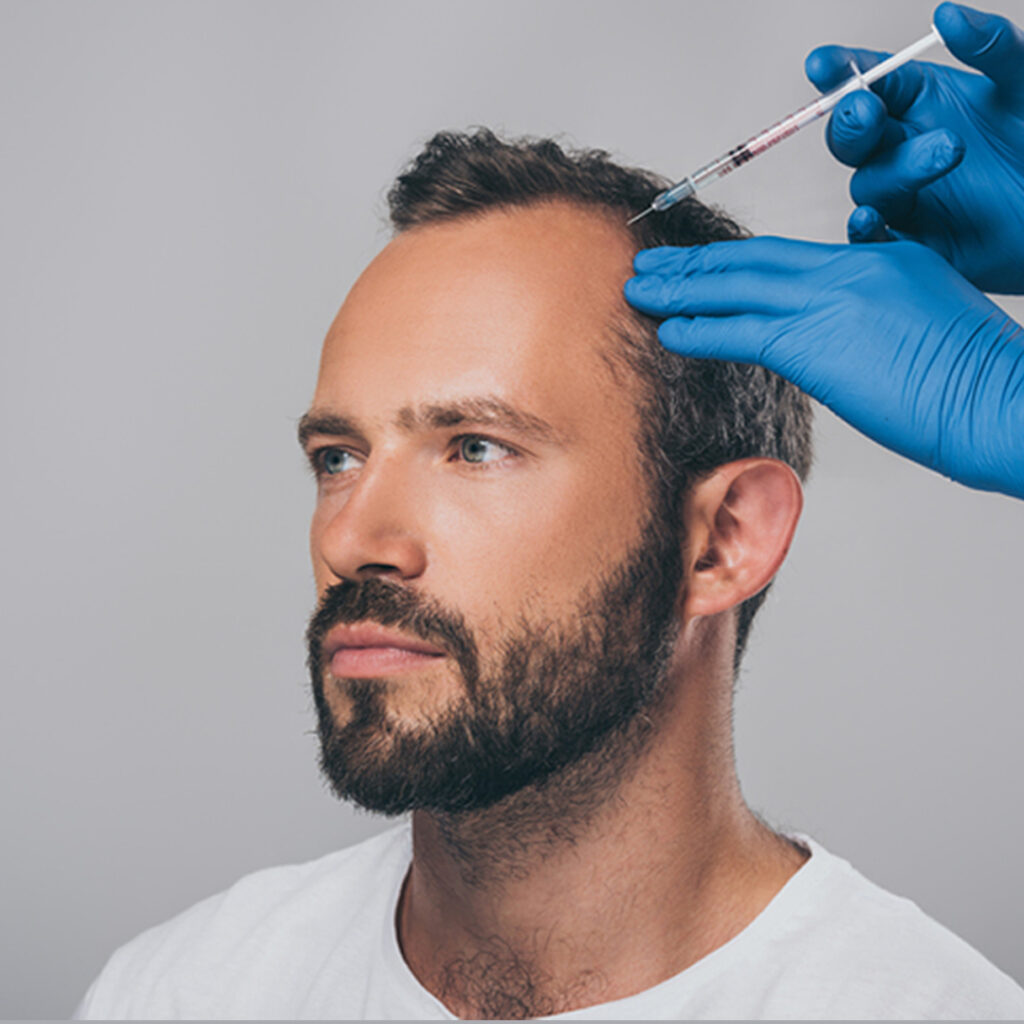Experiencing unexplained hair thinning or sudden hair fall? A blood test for hair fall can help identify underlying issues like nutrient deficiencies, thyroid dysfunction, or hormonal imbalances. This medically guided article outlines the essential tests, their benefits, and how they contribute to accurate diagnosis and personalized treatment.
Learn how a simple lab test can lead you one step closer to stronger, healthier hair, guided by medical insights and expert-backed information.
Understanding Hair Fall: When Should You Be Concerned?

Hair fall is normal—until it isn’t.
It’s completely natural to lose about 50–100 hairs daily. However, if you notice excessive shedding, thinning patches, or hair falling out in clumps, it may signal an underlying health condition.
Normal vs. Excessive Hair Shedding
- Normal: Light hair on your pillow or after brushing
- Excessive: Hair clogging your shower drain, visible scalp spots
Common Symptoms That Warrant Medical Testing
- Rapid hair thinning or bald spots
- Loss of eyebrow or body hair
- Accompanying fatigue, weight changes, or mood swings
- Recent childbirth, illness, or hormonal shifts
If these sound familiar, a blood test for hair fall may be the first step to uncovering the root cause.
What Is a Blood Test for Hair Fall?
A blood test for hair fall is a diagnostic tool used by dermatologists and trichologists to evaluate potential internal causes of hair loss. Rather than treating symptoms blindly, these tests allow for targeted, personalized treatment plans.
Purpose of Blood Tests in Hair Loss Diagnosis
- Rule out nutritional deficiencies
- Detect hormonal or thyroid imbalances
- Assess immune or inflammatory markers
- Guide further medical treatment
How It Works: Process and Expectations
- A healthcare provider collects a small blood sample
- Lab analysis is conducted (usually within 24–72 hours)
- Results are interpreted by a medical professional
- Further treatment or referrals may follow
Key Blood Tests Recommended for Hair Loss Evaluation
These are the most common tests prescribed when evaluating chronic or sudden hair fall:
Complete Blood Count (CBC)

Detects anemia, infections, or general health issues that may influence hair shedding.
Thyroid Function Tests (T3, T4, TSH)
Thyroid disorders like hypothyroidism and hyperthyroidism are known causes of hair thinning, especially in women.
Ferritin and Iron Panel
Low iron or ferritin levels often contribute to telogen effluvium, a common type of temporary hair loss.
Vitamin D & B12 Levels
Both are crucial for hair follicle health. Deficiencies are frequently associated with chronic shedding and dull hair texture.
Hormonal Profile (Testosterone, DHEA, Estrogen, FSH/LH)
Helps identify polycystic ovarian syndrome (PCOS), menopause-related changes, or androgenic alopecia.
ANA Test (Autoimmune Markers)
Autoimmune diseases like lupus or alopecia areata can cause sudden, patchy hair loss.
Zinc and Biotin Levels
Essential micronutrients for keratin production and follicle strength.
What These Tests Reveal About Your Hair Loss
Nutrient Deficiencies
Low levels of iron, ferritin, B12, or vitamin D can disrupt the hair growth cycle, leading to excessive shedding.
Hormonal Imbalances
Androgens like testosterone and DHT may be elevated in cases of androgenic alopecia (pattern hair loss), especially in males and females with PCOS.
Thyroid and Autoimmune Disorders
Undiagnosed thyroid problems or autoimmune responses can lead to diffuse or localized hair loss.
Inflammatory Markers
Tests like ESR or CRP may signal systemic inflammation affecting follicular health.
Who Should Get a Blood Test for Hair Loss?
Blood tests aren’t always necessary, but in many cases, they provide crucial diagnostic clarity.
Recommended For:
- Individuals with sudden, severe, or persistent hair loss
- Women experiencing hair thinning post-pregnancy or during menopause
- Patients planning hair transplant or PRP treatments
- Anyone with other unexplained symptoms, like fatigue or hormonal irregularities

Expert Insights: What Dermatologists Look for in Test Results
“Understanding the biochemical profile helps us treat the patient—not just the symptom,” says Dr. Rana Irfan, ABHRS and ISHRS-certified hair transplant surgeon.
Medical Opinion: Root Cause Identification
Rather than relying solely on external treatments, dermatologists use test results to identify systemic causes that may otherwise go unnoticed.
Personalized Treatment Planning
- Iron or vitamin infusions
- Hormonal therapy for PCOS
- Thyroid medications
- Dietary and lifestyle changes
Cost of Blood Tests for Hair Fall in Pakistan (and Globally)
Price Range by Test Type
- CBC: PKR 500–800
- Ferritin: PKR 1,200–2,000
- Thyroid Panel: PKR 1,500–3,000
- Hormonal Panel: PKR 3,000–7,000
- Vitamin D/B12: PKR 1,800–2,500
Prices vary by lab and location.
Insurance and Lab Coverage
Some tests may be partially covered by insurance. In Pakistan, Chughtai Lab, Excel Labs, and Aga Khan Lab offer comprehensive hair loss blood panels.
What to Do After Getting Your Results
Step-by-Step:
- Review results with a certified dermatologist or trichologist
- Discuss targeted treatments or further testing
- Begin appropriate therapy (medical, nutritional, or procedural)
- Schedule periodic re-testing if needed
Pro Tip: Always interpret lab reports with medical supervision. Self-diagnosing can delay effective treatment.
FAQs About Blood Tests for Hair Fall
Are blood tests always necessary for hair loss?
Not always, but they’re crucial for identifying internal causes that may not be visible externally.
Can I take supplements without testing?
It’s best to confirm deficiencies before supplementing, as excess intake can be harmful.
Do I need to fast before these tests?
Some tests require fasting (like lipid profile); your provider will guide you accordingly.
How long does it take to get results?
Most labs deliver results within 24–72 hours.
Expert Tips to Prevent Hair Fall Based on Lab Reports
- Correct Deficiencies: Iron, zinc, D3, and B12
- Balance Hormones: Especially if diagnosed with PCOS or thyroid disorders
- Optimize Diet: Include protein, leafy greens, and omega-3s
- Manage Stress: Cortisol and chronic stress impact hair growth
- Track Progress: Recheck labs every 3–6 months if hair loss persists
Book a Blood Test or Consultation Today
Hair fall is frustrating—but it’s also treatable. Whether you’re in Islamabad or anywhere in Pakistan, taking a blood test for hair fall is the first step toward real answers and real results.
👉 Book a consultation today to receive personalized, medically supervised guidance for your hair restoration journey.
